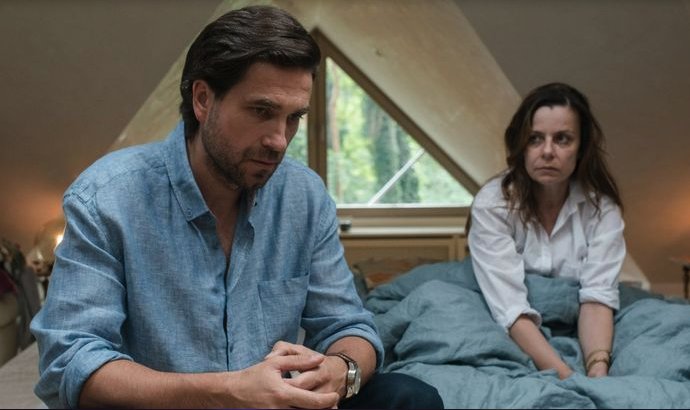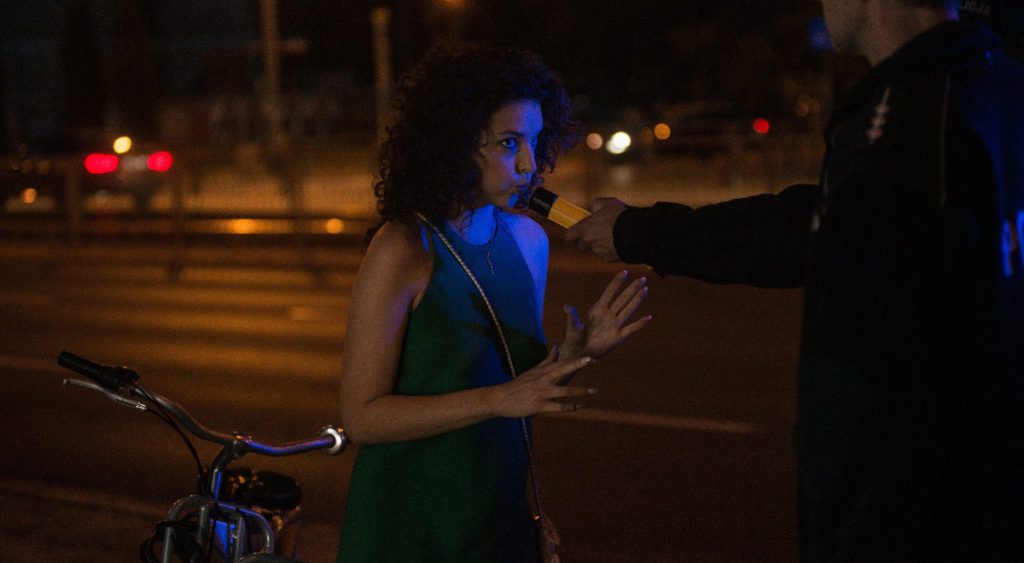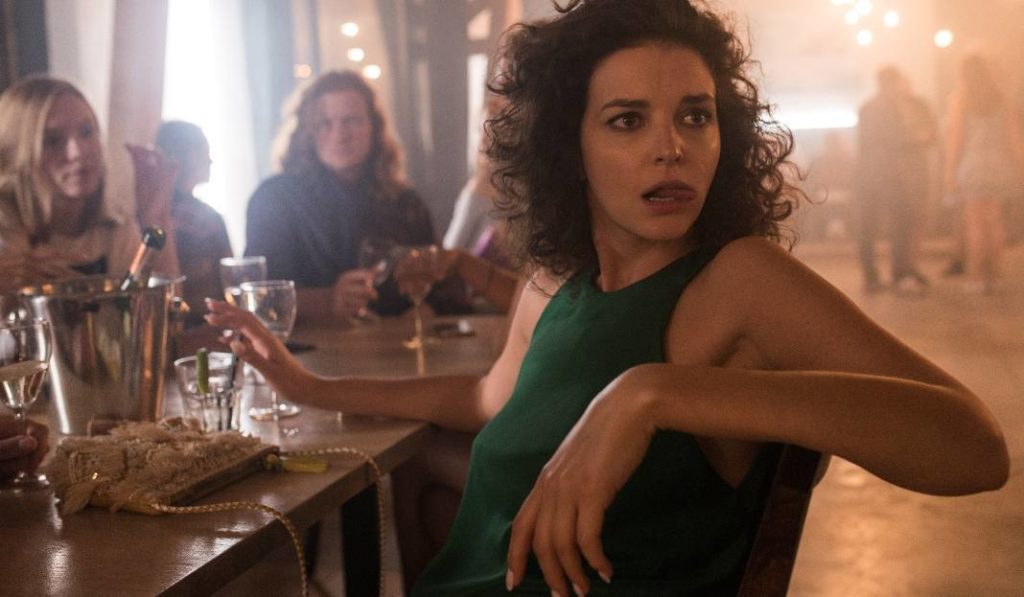Summary
Kinga Debska’s new film presenting three different women’s experience of alcohol and its consequences is both painful and hopeful, without being judgemental towards anyone concerned.
Three very different women reach tipping point in their relationships with alcohol in Zabawa, Zabawa. Their stories barely touch each other (apart from the same two policemen interviewing each at some stage) and are presented in alternating scenes. The film focuses very closely on these three women (though does not dismiss the men in their orbit) and shows clearly that there can be a wide range of experiences in relation to drink; and victory over it cannot be presumed, no matter how successful or intelligent an individual is in other areas of their lives.
We first meet Magda (Maria Debska), who is finishing studies and moving into office work. She has a slightly strained relationship with her parents, though it is a completely believable domestic scene: they don’t understand her carefree lifestyle, and she barely thinks about it. Next, we are introduced to Teresa (Dorota Kolak), a middle-aged professor and pediatric consultant, as she is about to receive an award. She conducts subtle doublethink in relation to the people around her (which demonstrates some sharp writing on the part of Kinga Debska and Mika Nunin), first crediting colleagues, family, and students when she is handed her award, but hardly able to talk to them afterward. A celebratory drink is followed by more, in an out-of-the-way bar. Lastly, public prosecutor, Dorata (Agata Kulesza), who is in complete denial of her drink habit because it has no consequences: her office gives her immunity from any charges, and her MP husband is able to get things hushed up.
I am in awe of the writing. These three women were real, nothing about what happened in their contrasting story arcs seemed forced or unlikely, and I am certain lives like these are taking place in my city as well as theirs. Two incidents were a little predictable, but only to the extent that the characters took themselves in those directions. The three personalities were distinctly drawn so that it was understandable when they had unique reactions to their circumstances, and each of them (and their friends and families) had a varying capacity to cope. My respect for the writing has increased with every thought I’ve had about the film since leaving the cinema two hours ago: I can see myself thinking more about people I meet as a result, knowing that everyone has lives underneath what we see and that maybe they deserve compassion.

As well as the writing of the characters, the other reason to respect the writing is that Zabawa, Zabawa does not attempt to explain the causes of drink problems: one of the women labels herself as an alcoholic towards the end, but none of them say or are told that it is a disease, an addiction, a bad habit, etc. Instead, they are compelled to face the consequences, and to varying degrees of success, according to the steepness of the curve they go through, the support they have, and their own internal resources.
Something odd: the end seemed a little abrupt at the time, and I wondered how the film could end there? But within a few minutes, my thoughts settled and I realized just how realistic each of the three story arcs was. Stories of alcoholism don’t necessarily conclude, after all; some may fade out into loneliness or desperation, while others who “hit the bottom” can swim their way back up into clarity. None of these are finite states with clear points of arrival, but Zabawa, Zabawa showed them to us as snapshots, which worked very well; well enough that I’m on the edge of tears remembering it.
These roles clearly demanded a lot of their actors, and they all met those demands. Whether everyday two-faced women, or people in the naked depths of trauma or withdrawal, Debska, Kolak and Kulesza alike are damned impressive. That said, I think Kolak was the one who impressed me the most, as her character started out as being able to put on an effective mask around other people (which we in the audience were able to see), and she goes through a radical transformation to having no mask at all.

There were a couple of minor characters (the linking policemen) who were rather superficially written, almost as comic relief in comparison. But we needed that, just like the occasional light moment in Widows. Also, I think that jarringly different style of characterization fitted in this film: Zabawa, Zabawa shows us what the world of alcohol-dependent people can be like, and sometimes that world will feature ignorant voices.
Kinga Debska directed the film as well as being one of the writers. Her direction works well, in that we can watch three separate strands without any risk of confusion. The camera’s attention to the protagonists is varied cleverly: for example, moving around Teresa in a spin showing her nervousness at the prospect of talking directly to people. Especially admirable is how the film avoids judging people: Zabawa, Zabawa is almost a stoical view on an emotive topic. Some of the scenes and dialogue can be extremely difficult on the senses, but they are what they are. Those who are honest with themselves seem to manage best.
Apparently, Poland has an increasing problem with alcoholism in its population, unlike the rest of Europe. Perhaps the film can be a wake-up call to viewers at home about that problem. To me, it has been a great experience to see that the Polish film industry produces more than action thrillers, and I will certainly be watching out for all the above names again.



